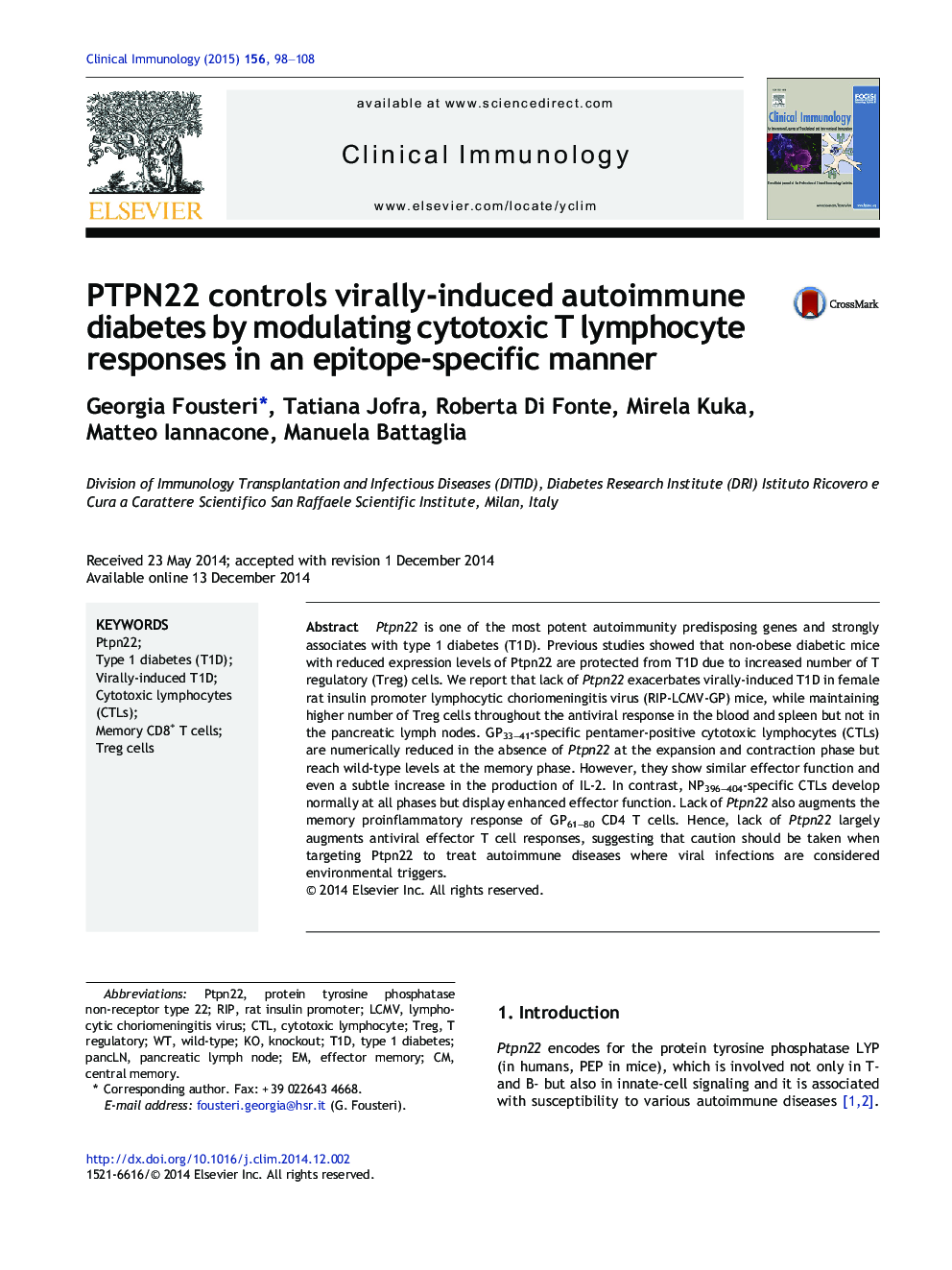| Article ID | Journal | Published Year | Pages | File Type |
|---|---|---|---|---|
| 6087383 | Clinical Immunology | 2015 | 11 Pages |
â¢Lack of Ptpn22 exacerbates type 1 diabetes (T1D) in female RIP-LCMV-GP mice.â¢Treg number is increased in the absence of Ptpn22 throughout the antiviral response.â¢T1D associates with changes in the effector memory function of specific CTL subsets.â¢Antigen-specific memory CD4+ responses are augmented in the absence of Ptpn22.
Ptpn22 is one of the most potent autoimmunity predisposing genes and strongly associates with type 1 diabetes (T1D). Previous studies showed that non-obese diabetic mice with reduced expression levels of Ptpn22 are protected from T1D due to increased number of T regulatory (Treg) cells. We report that lack of Ptpn22 exacerbates virally-induced T1D in female rat insulin promoter lymphocytic choriomeningitis virus (RIP-LCMV-GP) mice, while maintaining higher number of Treg cells throughout the antiviral response in the blood and spleen but not in the pancreatic lymph nodes. GP33-41-specific pentamer-positive cytotoxic lymphocytes (CTLs) are numerically reduced in the absence of Ptpn22 at the expansion and contraction phase but reach wild-type levels at the memory phase. However, they show similar effector function and even a subtle increase in the production of IL-2. In contrast, NP396-404-specific CTLs develop normally at all phases but display enhanced effector function. Lack of Ptpn22 also augments the memory proinflammatory response of GP61-80 CD4 T cells. Hence, lack of Ptpn22 largely augments antiviral effector T cell responses, suggesting that caution should be taken when targeting Ptpn22 to treat autoimmune diseases where viral infections are considered environmental triggers.
